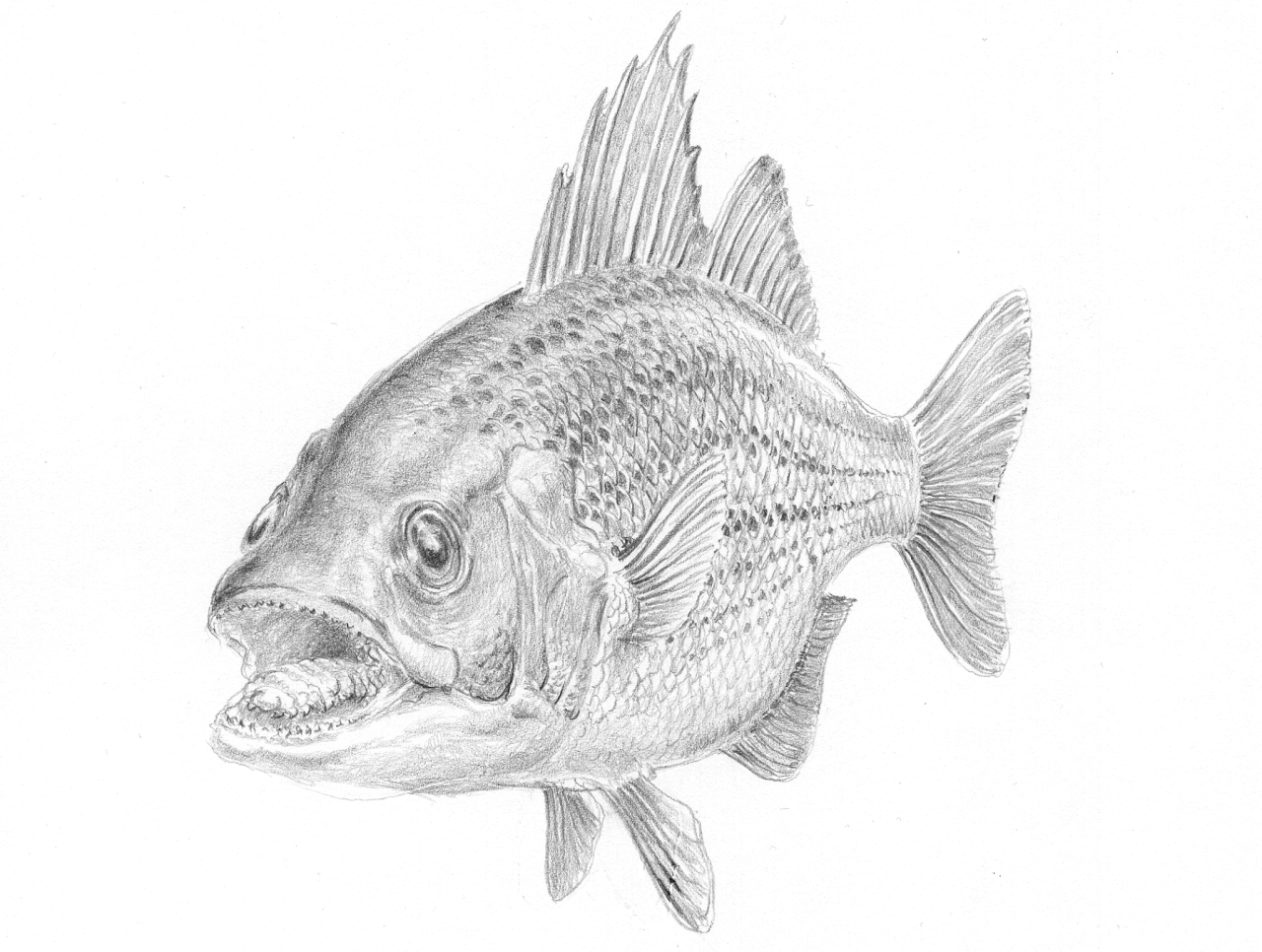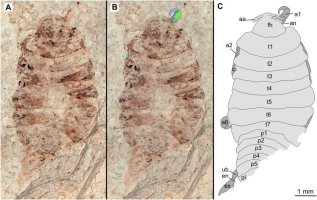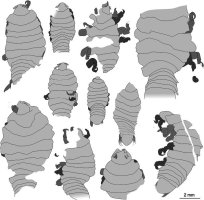Fossilized Parasite from Kučlín
› Detail › Fossilized Parasite from KučlínExhibit of the Month 1 / 2023
A significant paleontological site near Kučlín, not far from Bílina, has yielded another amazing specimen from the world of fossils. The Kučlín site is famous for its abundance of perfectly preserved fossils of fish, insects, and plants from the late Eocene period. Their age has been determined to be 38 million years. Unique finds of crocodile teeth, turtle shell plates, and, more recently, two exceptional discoveries of skeletal remains of a mammal and a frog have also come from here. Based on the latest research by Czech and German scientists, fossils of a parasite from the family Cymothoidae were described from Kučlín in 2021. These are small crustaceans that lived in water and entered the oral cavity of fish, where they attached themselves to the root of the tongue with their hooked legs. The parasite fed on the blood flowing into the tongue. The tongue gradually died, and the parasite permanently attached itself in its place, effectively replacing the tongue. It then fed by sucking blood from the fish and also subsisted on plankton from the water that the fish ingested. Paleontological finds of these parasites are very rare because the structure of their bodies is very delicate and difficult to detect in fish fossils. Currently, related species of these parasites live in the waters of subtropical and tropical regions.
The exhibit of the month of January was prepared by Pavel Dvořák - curator of the geological subcollection
 en
en cs
cs de
de

